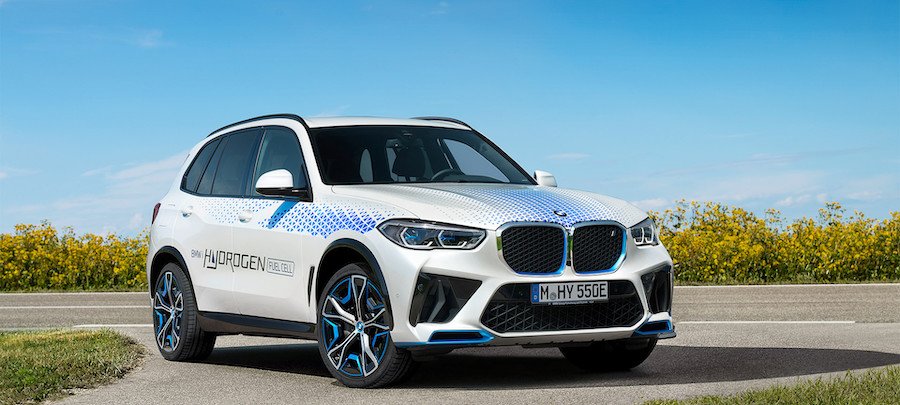BMW to launch series-production hydrogen FCEV by 2030

BMW’s first publicly available hydrogen fuel cell car is “probably going to [arrive] in the second half of the decade”, according to the project’s chief engineer, Jürgen Guldner.
Speaking in Antwerp, where the company presented a small pilot fleet of fully functional, fuel cell iX5 SUVs to journalists and politicians, Guldner said BMW is “waiting for the tipping point of the [refuelling] infrastructure”, putting emphasis on the European Union’s Alternative Fuels Infrastructure Directive, which could soon attain full Regulation status.
Such a change in status would be significant because it would mandate the installation of truck-specific refuelling stations every 150km (93 miles) along arterial routes. In time, these could provide the skeleton of a widespread high-pressure passenger car refuelling network.
It’s one reason why Guldner views the emergence of fuel cell cars (FCEVs) as only “a matter of time”. He said: “The scaling for battery-electric cars will reach some limits and the limits will be different in different countries. It could be raw materials. It could be infrastructure.” In Europe, he suggested, a “significant minority” of cars could be FCEVs.
Although he was unwilling to reveal the overall build cost of each of the hand-assembled iX5s, Guldner said FCEV powertrain prices are currently high not because of raw materials but because of low volumes and this will change.
“We’ve [already] seen a pretty sharp decline in cost in the last few years,” he said. Guldner also pointed out that the portion of raw materials needed for FCEVs is much lower than for BEVs, meaning FCEVs will be less vulnerable to the volatility in the market.
Internal studies at BMW show that cost parity with BEVs is “absolutely possible” in the next decade. At that stage, the convenience and long-distance capabilities of FCEVs will be their selling point.
However, the form that any series-production FCEV BMW eventually takes remains unknown. Guldner says something BMW X5-sized suits the technology but, whatever the model, full powertrain interchangeability is planned.
“We’re going to develop tanks that look different to [the T-shaped tanks inside the iX5] and that will fit in the design space of the battery of a battery-electric car,” said Guldner. This approach will apply to the upcoming BMW Neue Klasse range, which is due in 2025.
Verwandte Nachrichten
